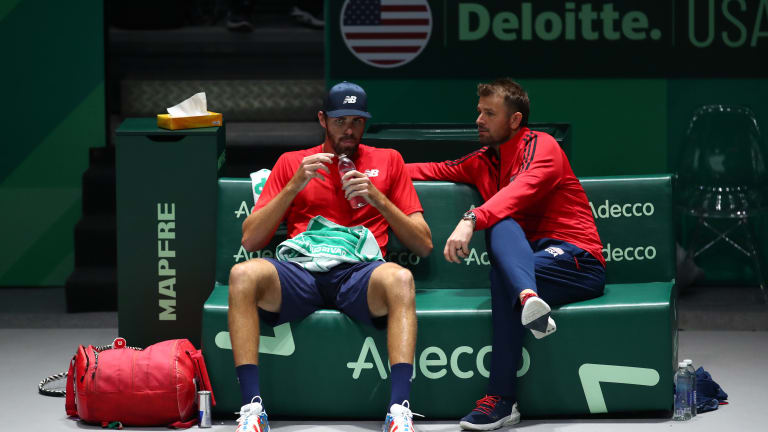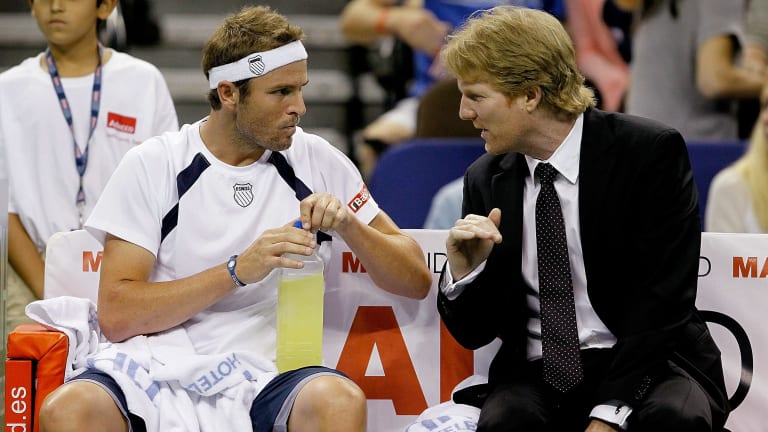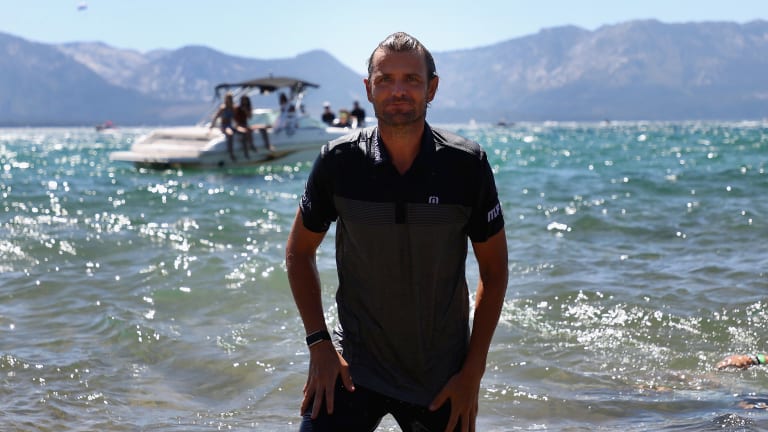Tennis.com Interview
Making the turn: Mardy Fish finds new meaning off the court
By Sep 18, 2021Tennis.com Interview
Never judge, just love: Jessica Pegula and her dogs have been a winning pair
By Apr 24, 2025Tennis.com Interview
It's the most wide open clay season on the ATP Tour in 20 years—and the players are here for it
By Apr 24, 2025Tennis.com Interview
A year into retirement, Garbiñe Muguruza reconnects: “Tennis wants me back!”
By Apr 22, 2025Tennis.com Interview
Aryna Sabalenka on Marg-Arynas, team TikToks—and her quest for that elusive Porsche
By Apr 19, 2025Tennis.com Interview
Jan-Lennard Struff sees Munich title defense bid as 'perfect opportunity' to turn 2025 around
By Apr 14, 2025Tennis.com Interview
Lorenzo Musetti manifested his 'special' week in Monte Carlo with first Masters 1000 final
By Apr 12, 2025Tennis.com Interview
No logic, just a feeling: Andrey Rublev "always knew" he wanted to work with Marat Safin
By Apr 07, 2025Tennis.com Interview
Brad Gilbert, Patrick McEnroe weigh in on U.S. men's tennis evolution
By Apr 05, 2025Tennis.com Interview
Patrick McEnroe decries Jannik Sinner suspension, tags Joao Fonseca as future star
By Apr 04, 2025Making the turn: Mardy Fish finds new meaning off the court
Six years after saying goodbye to the pro-tour grind, Fish may be more active than ever—on the court, on the course, and helping combat a struggle anyone can encounter.
Published Sep 18, 2021
Advertising
Advertising

From a pressure standpoint, Fish much prefers being a captain.
© Getty Images
Advertising
Advertising
Advertising
Advertising

"I always felt gratified as a player when Jim Courier was captain, and I knew he had been in any possible scenario I might face on the court."
© 2011 Getty Images
Advertising

Fish took a celebratory dip in Lake Tahoe after dominating the 2020 American Century Championship.
© ([None] (Photographer) - [None] ( ([None] (Photographer) - [None] (Photographer) - [None]